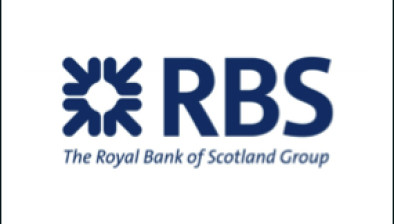RBS: Permanent Scottish jobs placements decline at sharpest rate since January 2017

Sebastian Burnside
Permanent staff placements in Scotland have declined at their sharpest rate in over two years, according to the latest Royal Bank of Scotland (RBS) report.
There were signs that firms were turning to short-term staff to fulfil jobs, as temporary billings rose at the fastest rate in five months, whilst temporary vacancy growth quickened from July.
Meanwhile, growth in permanent vacancies eased to the lowest seen in over three-and-a-half-years. Elsewhere, pay pressures remained solid in August while both temporary and permanent candidate availability continued to deteriorate.
Permanent staff appointments in Scotland fell for the second consecutive month during August, marking consecutive monthly falls for the first time over two-and-a-half years. That said, the rate of decline was modest overall and weaker than seen for the UK as a whole.
Meanwhile, temporary staff billings rose across Scotland, with the increase accelerating to the quickest since March. Overall, the rise was strong with temp billing growth in Scotland markedly outperforming that for the UK as a whole.
Permanent vacancy growth in Scotland eased during August for the fifth consecutive month, registering the weakest expansion in over three-and-a-half years. The slowdown in Scotland was mirrored at the UK level, albeit with Scotland reporting stronger growth.
Weaker growth in demand for permanent staff was in contrast to temporary vacancies, which increased at the fastest pace for ten months. Trends between Scotland and the UK as a whole diverged, however, with the latter observing the softest rise in temporary job openings since September 2009.
Latest survey data signalled sustained pay pressures across Scotland during August. Starting salaries awarded to permanent new joiners rose solidly overall. That said, permanent salary inflation was the slowest since January 2017.
Meanwhile, temporary pay rates in Scotland increased at a faster rate in August. The rise was robust overall, and above the series average.
As has been the case since March 2012, permanent candidate availability in Scotland continued to decline in August. The supply of temporary candidates also fell, although the rate of decline eased from July.
In both cases, the supply of candidates in Scotland fell more quickly than across the UK as a whole.
Sebastian Burnside, chief economist at Royal Bank of Scotland, said: “Latest survey data reported a decline in permanent placements for the second month in a row, with the fall accelerating from July. Alongside easing demand for permanent staff, this indicates a softening of the Scottish labour market, albeit only moderate, and softer than across the UK as a whole.
“Moreover, data also appeared to highlight firms’ preference towards temporary staff over permanent employees, as slower permanent vacancy growth contrasted with strong demand for temporary workers. In addition, temporary billings continued to rise with Scotland markedly outperforming the UK as a whole.”
The RBS report, compiled by IHS Markit, is based on a monthly survey of around 100 recruitment and employment consultants, and provides up-to-date information on Scottish labour market trends and is seasonally adjusted.










